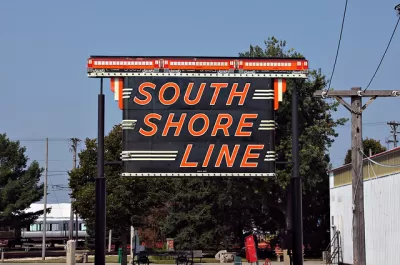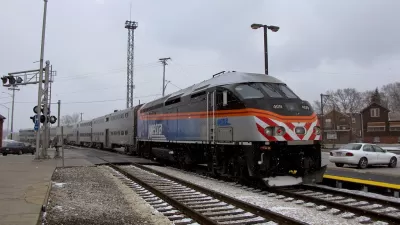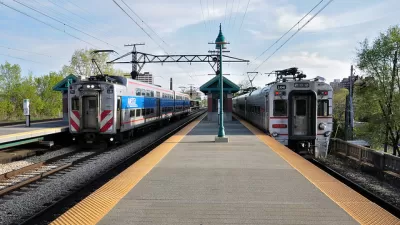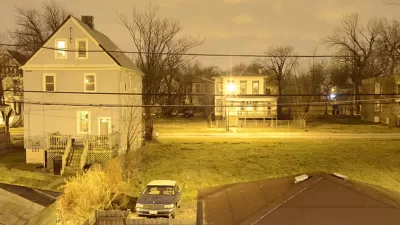Middle class African Americans are leaving Chicago, and that leaves neighborhoods like the city's South Shore reeling.

Chicago's South Shore has long been home to middle class black families. The area boasts quick access to downtown and was once home to former first lady, Michelle Obama. In recent years, however, the neighborhood has been shrinking as families move to avoid a struggling economy and rising crime rates. "This population loss — 181,000 black residents between 2000 and 2010 — is tearing at the financial underpinnings and the social fabric of the entire city," Kathy Bergen, Angela Caputo, and William Lee write in their piece for the Chicago Tribune.
Some say the city is responsible for some of the neighborhood's woes. "As industry has fled the city over the past 30 years, the city's economic development efforts have focused heavily on wooing out-of-town or suburban employers to relocate to Chicago, often to the downtown," the Tribune team writes. One struggle has been a lack of grocery stores ever since the Dominick’s shut down in Jeffrey Plaza three years ago, though there may finally be a new grocery store tenant coming soon.
FULL STORY: South Shore, once thriving, struggles amid economic erosion and crime

Maui's Vacation Rental Debate Turns Ugly
Verbal attacks, misinformation campaigns and fistfights plague a high-stakes debate to convert thousands of vacation rentals into long-term housing.

Planetizen Federal Action Tracker
A weekly monitor of how Trump’s orders and actions are impacting planners and planning in America.

Chicago’s Ghost Rails
Just beneath the surface of the modern city lie the remnants of its expansive early 20th-century streetcar system.

Bend, Oregon Zoning Reforms Prioritize Small-Scale Housing
The city altered its zoning code to allow multi-family housing and eliminated parking mandates citywide.

Amtrak Cutting Jobs, Funding to High-Speed Rail
The agency plans to cut 10 percent of its workforce and has confirmed it will not fund new high-speed rail projects.

LA Denies Basic Services to Unhoused Residents
The city has repeatedly failed to respond to requests for trash pickup at encampment sites, and eliminated a program that provided mobile showers and toilets.
Urban Design for Planners 1: Software Tools
This six-course series explores essential urban design concepts using open source software and equips planners with the tools they need to participate fully in the urban design process.
Planning for Universal Design
Learn the tools for implementing Universal Design in planning regulations.
planning NEXT
Appalachian Highlands Housing Partners
Mpact (founded as Rail~Volution)
City of Camden Redevelopment Agency
City of Astoria
City of Portland
City of Laramie





























